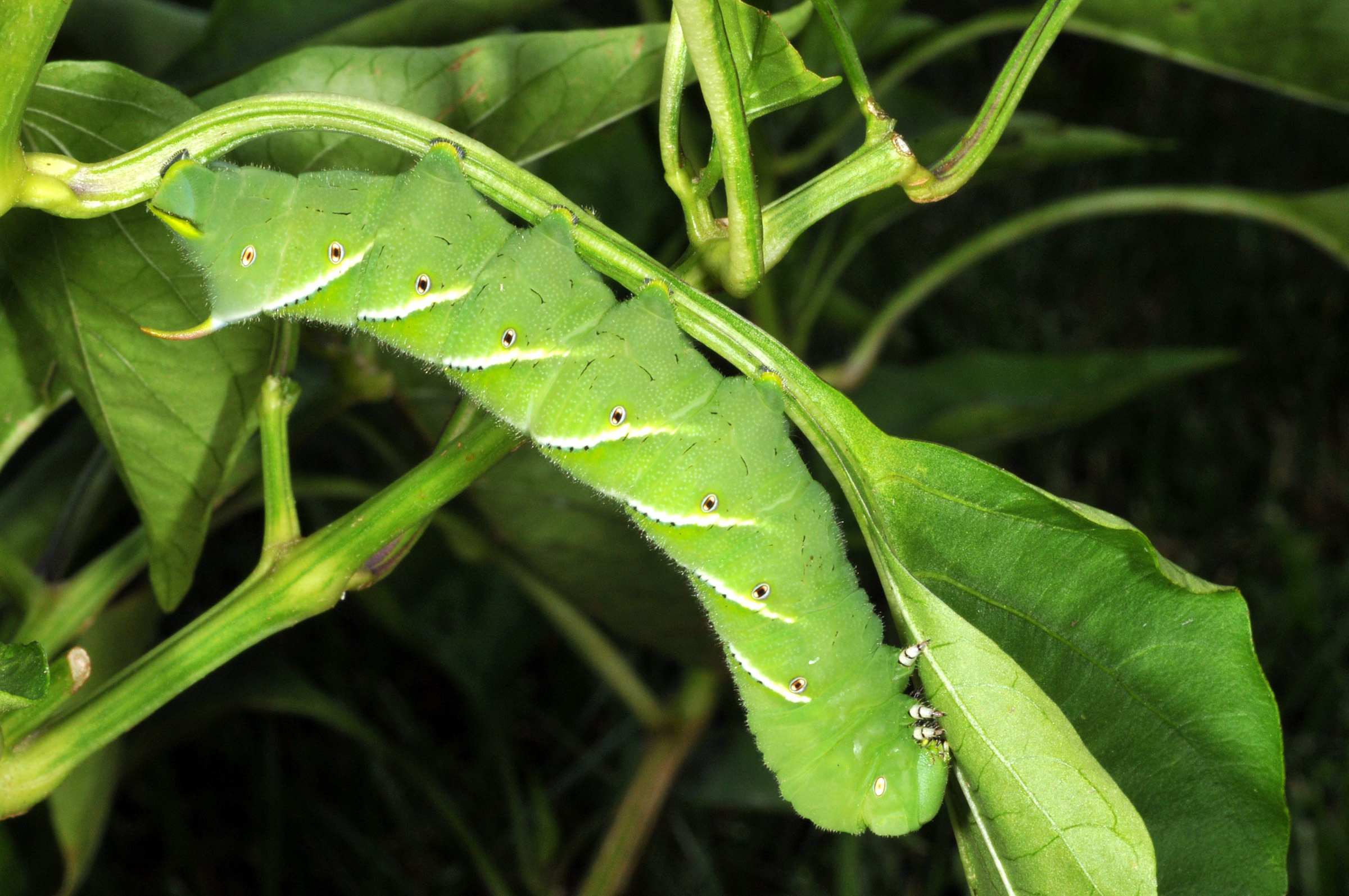Insect expert: Watch for hornworms, other garden pests

Hornworms, a common garden pest, can defoliate tomatoes, peppers, potatoes and other vegetables. (Purdue Agriculture photo/Rick Foster)
WEST LAFAYETTE, Ind. - Now that the weather is getting warmer, gardeners should be on the lookout for hornworms and other garden pests, says a Purdue Extension insect specialist.
Tomato and tobacco hornworms are the caterpillars of two large moths that fly in June. Easily identified by their protruding "horn," hornworms grow to four inches long and can destroy foliage and eat on the green fruit, Rick Foster said.
Both species of hornworms also feed on peppers, eggplants and potatoes. Removing them by hand is the best solution for most home gardeners, he said.
"Most of the time there aren't that many of them and they move very slow, so they are easy to pick up," Foster said. "Oftentimes people are nervous because they think the horn is a stinger, but it's just a diversion for predators."
Once removed from the plant, gardeners can squish them, snip them with scissors or drop them into a bucket of water. Besides handpicking, he said safe biological controls such as Bacillus thuringiensis, or BT, also are effective, particularly for smaller larva.
"Pesticides should be the last resort in a gardener's arsenal," Foster said. "One of the joys of being a home gardener is being able to pick the produce from the plant and eat it without worrying about pesticide residues."
Pesticides may be the only solution to deal with another garden pest, the corn earworm, which emerges in late summer.
"It's not a problem for sweet corn harvested in July," Foster said. "But with some sweet corn planted late this year and on schedule to be harvested as late as August and September, we will probably see corn ear worm damage."
There are few non-chemical controls for corn earworm. Pyrethroid sprays or a dusting of carbaryl insecticides such as Sevin on the silks are the main options, he said.
Foster recommended that gardeners who do canning or freezing plant an earlier variety of sweet corn next year.
If homeowners find unknown pests in the garden, they can send in samples and digital pictures to the Purdue Plant and Pest Diagnostic Laboratory. Handling, identification and basic diagnostic tests cost $11 per sample for Indiana residents and $22 for those outside the state.
More information about garden pests and how to submit samples is available at the https://www.ppdl.purdue.edu/PPDL/
Writer: Lisa Schluttenhofer, 765-496-2384, lschlutt@purdue.edu
Source: Rick Foster, 765-494-9572, fosterre@purdue.edu
Ag Communications: (765) 494-2722;
Keith Robinson, robins89@purdue.edu
Agriculture News Page
